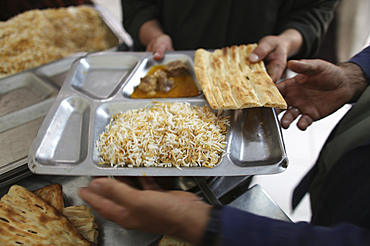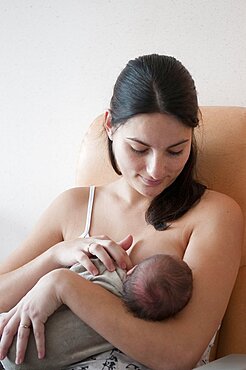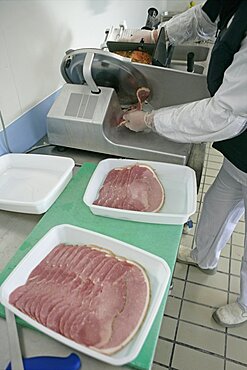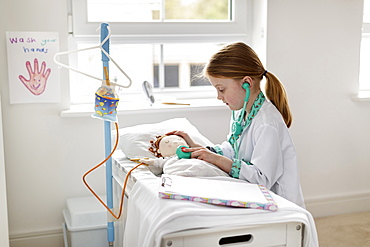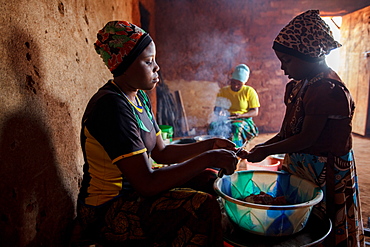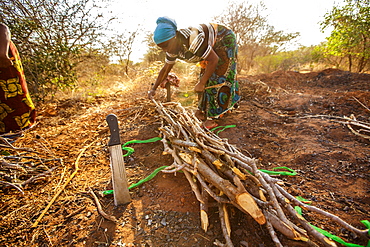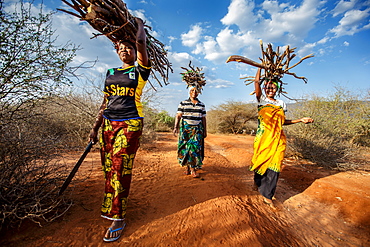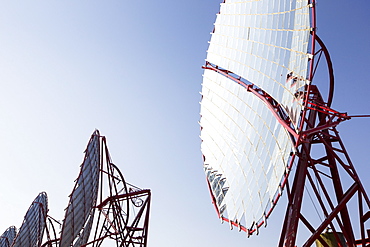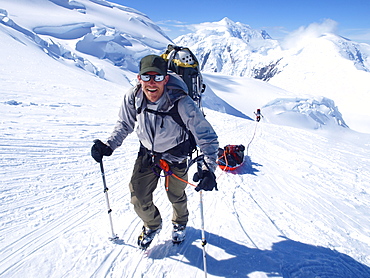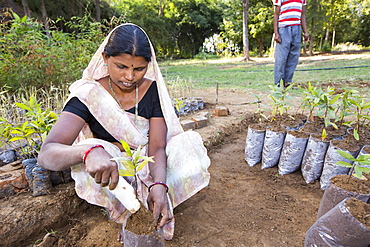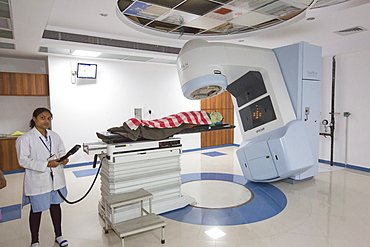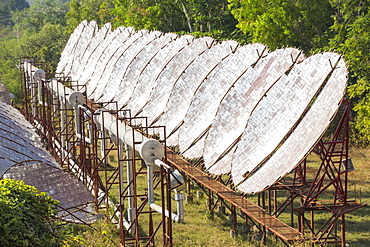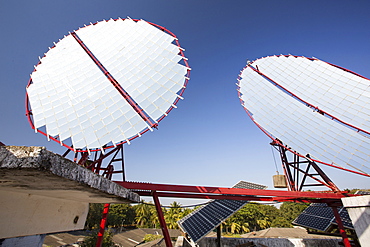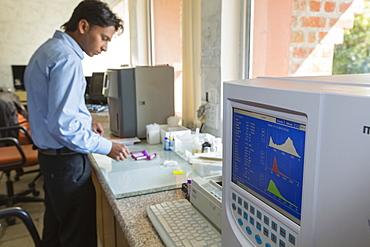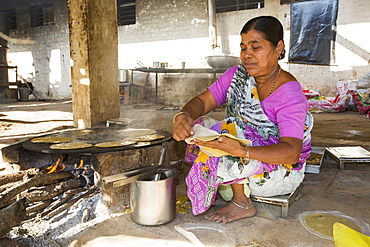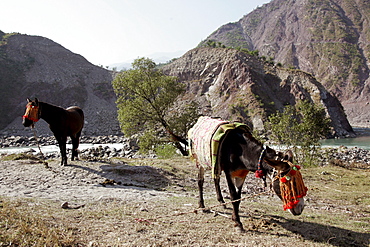Recent searches
Loading...
832-403774 - Specialist female doctor wearing white robe
832-400348 - Faceless beautician using massager to remove fat from hips of anonymous customer in salon. Cosmetologist in a beauty parlor. Cosmetologist dermatologist in a beauty clinic. Cosmetic procedures
1348-5337 - Medical intensive care unit at Jacques Cartier Hospital in Massy
1348-7 - In the delivery room, skin to skin contact and first attempt at breast-feeding.
1348-5 - In the delivery room, skin to skin contact and first attempt at breast-feeding.
1348-6 - In the delivery room, skin to skin contact and first attempt at breast-feeding.
1174-8940 - Young girl dressed as doctor pretending to treat patient in make-believe hospital bed
857-94727 - Mforo, Tanzania a village near Moshi, Tanzania. Solar Sister entrepreneur Fatma Mziray and her eldest daughter Zainabu Ramadhani, 19 cook lunch in her kitchen house using both a clean cookstove using wood and one using coal. One of her younger daughters, Nasma Ramadhani, age 5 helps out. Fatma Mziray is a Solar Sister entrepreneur who sells both clean cookstoves and solar lanterns. Fatma heard about the cookstoves from a Solar Sister development associate and decided to try one out. The smoke from cooking on her traditional wood stove using firewood was causing her to have a lot of heath problems, her lungs congested her eyes stinging and her doctor told her that she had to stop cooking that way. Some days she felt so bad she couldn't go in to cook. Fatma said, âCooking for a family, preparing breakfast, lunch and dinner I used to gather a large load of wood every day to use. Now with the new cook stove the same load of wood can last up to three weeks of cooking. âWith the extra time I can develop my business. I also have more time for the family. I can monitor my childrenâs studies. All of this makes for a happier family and a better relationship with my husband. Since using the clean cookstove no one has been sick or gone to the hospital due to flu.â Fatma sees herself helping her community because she no longer sees the people that she has sold cookstoves have red eyes, coughing or sick like they used to be. She has been able to help with the school fees for her children, purchase items for the home and a cow. âWhat makes me wake up early every morning and take my cookstoves and go to my business is to be able to take my family to school as well as to get food and other family needs.â
857-94726 - Zainabu Ramadhani, 19, (yellow and red patterned skirt) her mother Fatma Mziray, age 38, (blue head dress) and Fatmaâs sister-in-law Zaitun Hamad, 18, (orange wrap and white top) walk home after gathering firewood near Fatmaâs home in Mforo. Mforo is near Moshi, Tanzania. Fatma Mziray is a Solar Sister entrepreneur who sells both clean cookstoves and solar lanterns. Fatma heard about the cookstoves from a Solar Sister development associate and decided to try one out. The smoke from cooking on her traditional wood stove using firewood was causing her to have a lot of heath problems, her lungs congested her eyes stinging and her doctor told her that she had to stop cooking that way. Some days she felt so bad she couldn't go in to cook. Fatma said, âCooking for a family, preparing breakfast, lunch and dinner I used to gather a large load of wood every day to use. Now with the new cook stove the same load of wood can last up to three weeks of cooking. âWith the extra time I can develop my business. I also have more time for the family. I can monitor my childrenâs studies. All of this makes for a happier family and a better relationship with my husband. Since using the clean cookstove no one has been sick or gone to the hospital due to flu.â Fatma sees herself helping her community because she no longer sees the people that she has sold cookstoves have red eyes, coughing or sick like they used to be. She has been able to help with the school fees for her children, purchase items for the home and a cow. âWhat makes me wake up early every morning and take my cookstoves and go to my business is to be able to take my family to school as well as to get food and other family needs.â
857-94728 - Zainabu Ramadhani, 19, (yellow and red patterned skirt) her mother Fatma Mziray, age 38, (blue head dress) and Fatmaâs sister-in-law Zaitun Hamad, 18, (orange wrap and white top) walk home after gathering firewood near Fatmaâs home in Mforo. Mforo is near Moshi, Tanzania. Fatma Mziray is a Solar Sister entrepreneur who sells both clean cookstoves and solar lanterns. Fatma heard about the cookstoves from a Solar Sister development associate and decided to try one out. The smoke from cooking on her traditional wood stove using firewood was causing her to have a lot of heath problems, her lungs congested her eyes stinging and her doctor told her that she had to stop cooking that way. Some days she felt so bad she couldn't go in to cook. Fatma said, âCooking for a family, preparing breakfast, lunch and dinner I used to gather a large load of wood every day to use. Now with the new cook stove the same load of wood can last up to three weeks of cooking. âWith the extra time I can develop my business. I also have more time for the family. I can monitor my childrenâs studies. All of this makes for a happier family and a better relationship with my husband. Since using the clean cookstove no one has been sick or gone to the hospital due to flu.â Fatma sees herself helping her community because she no longer sees the people that she has sold cookstoves have red eyes, coughing or sick like they used to be. She has been able to help with the school fees for her children, purchase items for the home and a cow. âWhat makes me wake up early every morning and take my cookstoves and go to my business is to be able to take my family to school as well as to get food and other family needs.â
857-94729 - Zainabu Ramadhani, 19, (yellow and red patterned skirt) her mother Fatma Mziray, age 38, (blue head dress) and Fatmaâs sister-in-law Zaitun Hamad, 18, (orange wrap and white top) walk home after gathering firewood near Fatmaâs home in Mforo. Mforo is near Moshi, Tanzania. Fatma Mziray is a Solar Sister entrepreneur who sells both clean cookstoves and solar lanterns. Fatma heard about the cookstoves from a Solar Sister development associate and decided to try one out. The smoke from cooking on her traditional wood stove using firewood was causing her to have a lot of heath problems, her lungs congested her eyes stinging and her doctor told her that she had to stop cooking that way. Some days she felt so bad she couldn't go in to cook. Fatma said, âCooking for a family, preparing breakfast, lunch and dinner I used to gather a large load of wood every day to use. Now with the new cook stove the same load of wood can last up to three weeks of cooking. âWith the extra time I can develop my business. I also have more time for the family. I can monitor my childrenâs studies. All of this makes for a happier family and a better relationship with my husband. Since using the clean cookstove no one has been sick or gone to the hospital due to flu.â Fatma sees herself helping her community because she no longer sees the people that she has sold cookstoves have red eyes, coughing or sick like they used to be. She has been able to help with the school fees for her children, purchase items for the home and a cow. âWhat makes me wake up early every morning and take my cookstoves and go to my business is to be able to take my family to school as well as to get food and other family needs.â
857-94641 - The Muni Seva Ashram in Goraj, near Vadodara, India, is a tranquil haven of humanitarian care. The Ashram is hugely sustainable, next year it will be completely carbon neutral. Its first solar panels were installed in 1984, long before climate change was on anyones agenda. Their energy is provided from solar panels, and wood grown on the estate. Waste food and animal manure is turned inot biogas to run the estates cars and also used for cooking. Solar cookers are also used, and the air conditioning for the hospital is solar run. 70 % of the food used is grown on the estate. They provide an orphanage, schools for all ages, vocational training, care for the elderly, a specialist cancer hospital withstate of the art machinary, and even have a solar crematorium. This shot shows solar panels that focus the suns rays on heat exchangers to boil oil, which is then sent down to the kitchens below to heat the cookers.
857-88779 - Mountain ranger Brian Scheele on this way to Windy Corner on Mount McKinley, also know as Denali, in Alaska. He is pulling a sled, that together with his heavy backpack is containing all the gear like tents, clothing and food. Every climbing season High Mountain Rangers of the Denali National Park Service are called to help climbers in need. If possible the patient is brought down to Basecamp on foot, only in life threatening conditions a helicopter is called to evacuate the patient to a hospital in Anchorage. Mount McKinley, native name Denali, is the highest mountain peak in North America, with a summit elevation of 20,321 feet (6,194 m) above sea level. At some 18,000 feet (5,500 m), the base-to-peak rise is considered the largest of any mountain situated entirely above sea level. Measured by topographic prominence, it is the third most prominent peak after Mount Everest and Aconcagua. Located in the Alaska Range in the interior of the U.S. state of Alaska, McKinley is the centerpiece of Denali National Park and Preserve.
911-10638 - The Muni Seva Ashram in Goraj, near Vadodara, India, is a tranquil haven of humanitarian care. The Ashram is hugely sustainable, next year it will be completely carbon neutral. Its first solar panels were installed in 1984, long before climate change was on anyones agenda. Their energy is provided from solar panels, and wood grown on the estate. Waste food and animal manure is turned inot biogas to run the estates cars and also used for cooking. Solar cookers are also used, and the air conditioning for the hospital is solar run. 70 % of the food used is grown on the estate. They provide an orphanage, schools for all ages, vocational training, care for the elderly, a specialist cancer hospital withstate of the art machinary, and even have a solar crematorium. This shot shows the girls school.
911-10637 - The Muni Seva Ashram in Goraj, near Vadodara, India, is a tranquil haven of humanitarian care. The Ashram is hugely sustainable, next year it will be completely carbon neutral. Its first solar panels were installed in 1984, long before climate change was on anyones agenda. Their energy is provided from solar panels, and wood grown on the estate. Waste food and animal manure is turned inot biogas to run the estates cars and also used for cooking. Solar cookers are also used, and the air conditioning for the hospital is solar run. 70 % of the food used is grown on the estate. They provide an orphanage, schools for all ages, vocational training, care for the elderly, a specialist cancer hospital withstate of the art machinary, and even have a solar crematorium. This shot shows a woman planting trees for onward growth in the Ashrams forests.
911-10636 - The Muni Seva Ashram in Goraj, near Vadodara, India, is a tranquil haven of humanitarian care. The Ashram is hugely sustainable, next year it will be completely carbon neutral. Its first solar panels were installed in 1984, long before climate change was on anyones agenda. Their energy is provided from solar panels, and wood grown on the estate. Waste food and animal manure is turned inot biogas to run the estates cars and also used for cooking. Solar cookers are also used, and the air conditioning for the hospital is solar run. 70 % of the food used is grown on the estate. They provide an orphanage, schools for all ages, vocational training, care for the elderly, a specialist cancer hospital withstate of the art machinary, and even have a solar crematorium. This shot shows a Varian nuclear proton therapy machine in the specialist cancer hospital.
911-10641 - The Muni Seva Ashram in Goraj, near Vadodara, India, is a tranquil haven of humanitarian care. The Ashram is hugely sustainable, next year it will be completely carbon neutral. Its first solar panels were installed in 1984, long before climate change was on anyones agenda. Their energy is provided from solar panels, and wood grown on the estate. Waste food and animal manure is turned inot biogas to run the estates cars and also used for cooking. Solar cookers are also used, and the air conditioning for the hospital is solar run. 70 % of the food used is grown on the estate. They provide an orphanage, schools for all ages, vocational training, care for the elderly, a specialist cancer hospital withstate of the art machinary, and even have a solar crematorium. This shot shows the solar air conditioning for the Ashram's hospital.
911-10639 - The Muni Seva Ashram in Goraj, near Vadodara, India, is a tranquil haven of humanitarian care. The Ashram is hugely sustainable, next year it will be completely carbon neutral. Its first solar panels were installed in 1984, long before climate change was on anyones agenda. Their energy is provided from solar panels, and wood grown on the estate. Waste food and animal manure is turned inot biogas to run the estates cars and also used for cooking. Solar cookers are also used, and the air conditioning for the hospital is solar run. 70 % of the food used is grown on the estate. They provide an orphanage, schools for all ages, vocational training, care for the elderly, a specialist cancer hospital withstate of the art machinary, and even have a solar crematorium. This shot shows solar panels that focus the suns rays on heat exchangers to boil oil, which is then sent down to the kitchens below to heat the cookers.
911-10635 - The Muni Seva Ashram in Goraj, near Vadodara, India, is a tranquil haven of humanitarian care. The Ashram is hugely sustainable, next year it will be completely carbon neutral. Its first solar panels were installed in 1984, long before climate change was on anyones agenda. Their energy is provided from solar panels, and wood grown on the estate. Waste food and animal manure is turned inot biogas to run the estates cars and also used for cooking. Solar cookers are also used, and the air conditioning for the hospital is solar run. 70 % of the food used is grown on the estate. They provide an orphanage, schools for all ages, vocational training, care for the elderly, a specialist cancer hospital withstate of the art machinary, and even have a solar crematorium. This shot shows a Hematology Analyzer for analyzing blood in one of the labs in the specialist cancer hospital.
911-10640 - The Muni Seva Ashram in Goraj, near Vadodara, India, is a tranquil haven of humanitarian care. The Ashram is hugely sustainable, next year it will be completely carbon neutral. Its first solar panels were installed in 1984, long before climate change was on anyones agenda. Their energy is provided from solar panels, and wood grown on the estate. Waste food and animal manure is turned inot biogas to run the estates cars and also used for cooking. Solar cookers are also used, and the air conditioning for the hospital is solar run. 70 % of the food used is grown on the estate. They provide an orphanage, schools for all ages, vocational training, care for the elderly, a specialist cancer hospital withstate of the art machinary, and even have a solar crematorium. This shot shows a cook preparing chapatis on a biofuel stove.
1161-2581 - Donkeys from Brooke Hospital for Animals graze in village of Pattika, Pakistan
1161-2580 - Donkey from Brooke Hospital for Animals charity grazes in village of Pattika, Pakistan
857-31805 - Campesinos wash for market freshly-picked carrots in a river in Los Negros, Bolivia Friday, Nov. 12, 2004. Ernesto "Che" Guevara was captured by the Bolivian army in 1967 in a nearby valley and executed in La Higuera days later. His body was put on public display in the laundry room of the Vallegrande hospital, then secretly buried under the air strip for 30 years. Guevara and fellow communist guerillas were attempting to launch a continent-wide revolution modeled on Guevara's success in Cuba in the late 1950s. The Bolivian government recently began promoting the area where he fought, was captured, killed and burried for 30 years as the "Ruta del Che," or Che's Route.
857-31820 - Vendors sell their wares at a street market in El Torno, Bolivia Friday, Nov. 12, 2004. Ernesto "Che" Guevara was captured by the Bolivian army in 1967 in a nearby valley and executed in La Higuera days later. His body was put on public display in the laundry room of the Vallegrande hospital, then secretly buried under the air strip for 30 years. Guevara and fellow communist guerillas were attempting to launch a continent-wide revolution modeled on Guevara's success in Cuba in the late 1950s. The Bolivian government recently began promoting the area where he fought, was captured, killed and burried for 30 years as the "Ruta del Che," or Che's Route.
817-244597 - D-Bad Lauchstaedt, Goethestadt, Laucha, Sachsen-Anhalt, Heilquelle, Historische Kuranlagen, Barock, Kurpark, Kurhaus, Quellpavillon, Heilbrunnen, Kurpark Hotel Bad Lauchstaedt, Muehlenteich, D-Bad Lauchstaedt, Goethestadt, Laucha, Saxony-Anhalt, mineral s
You reached the end of search results




